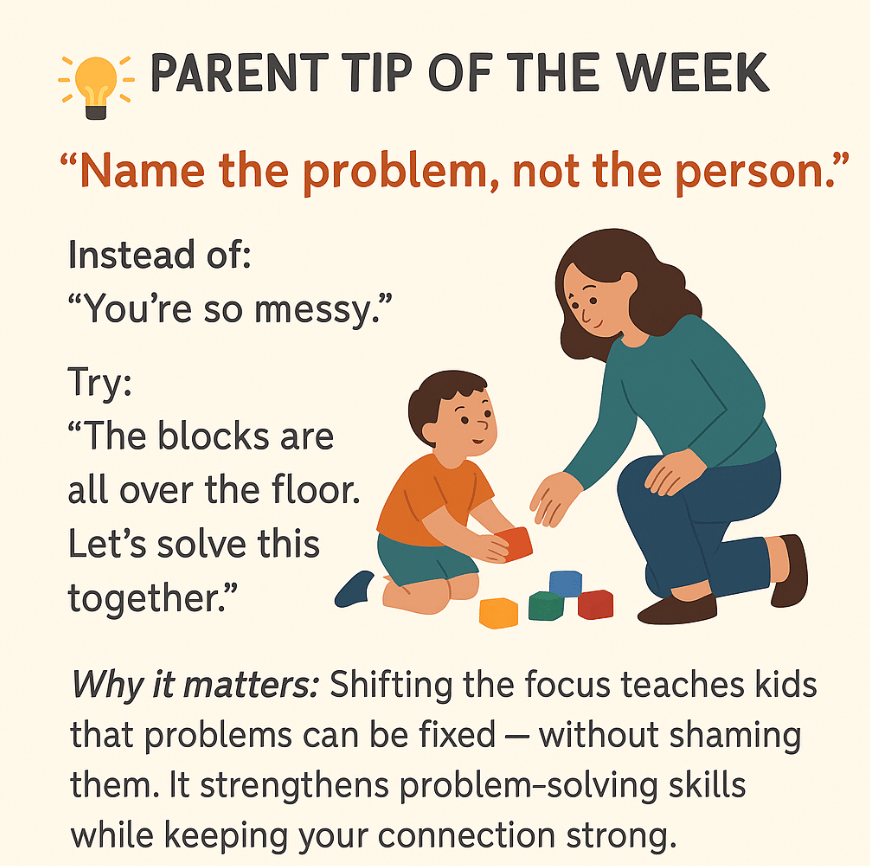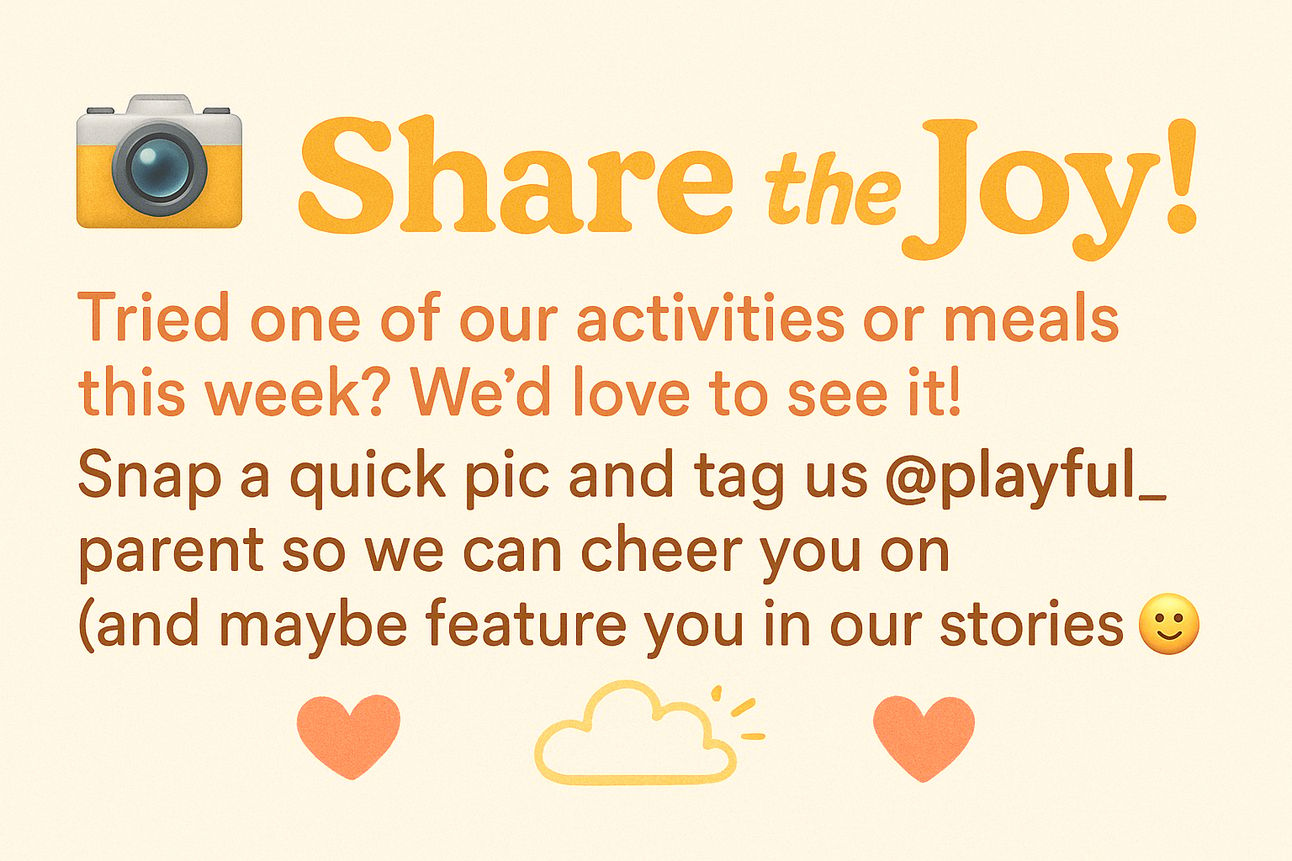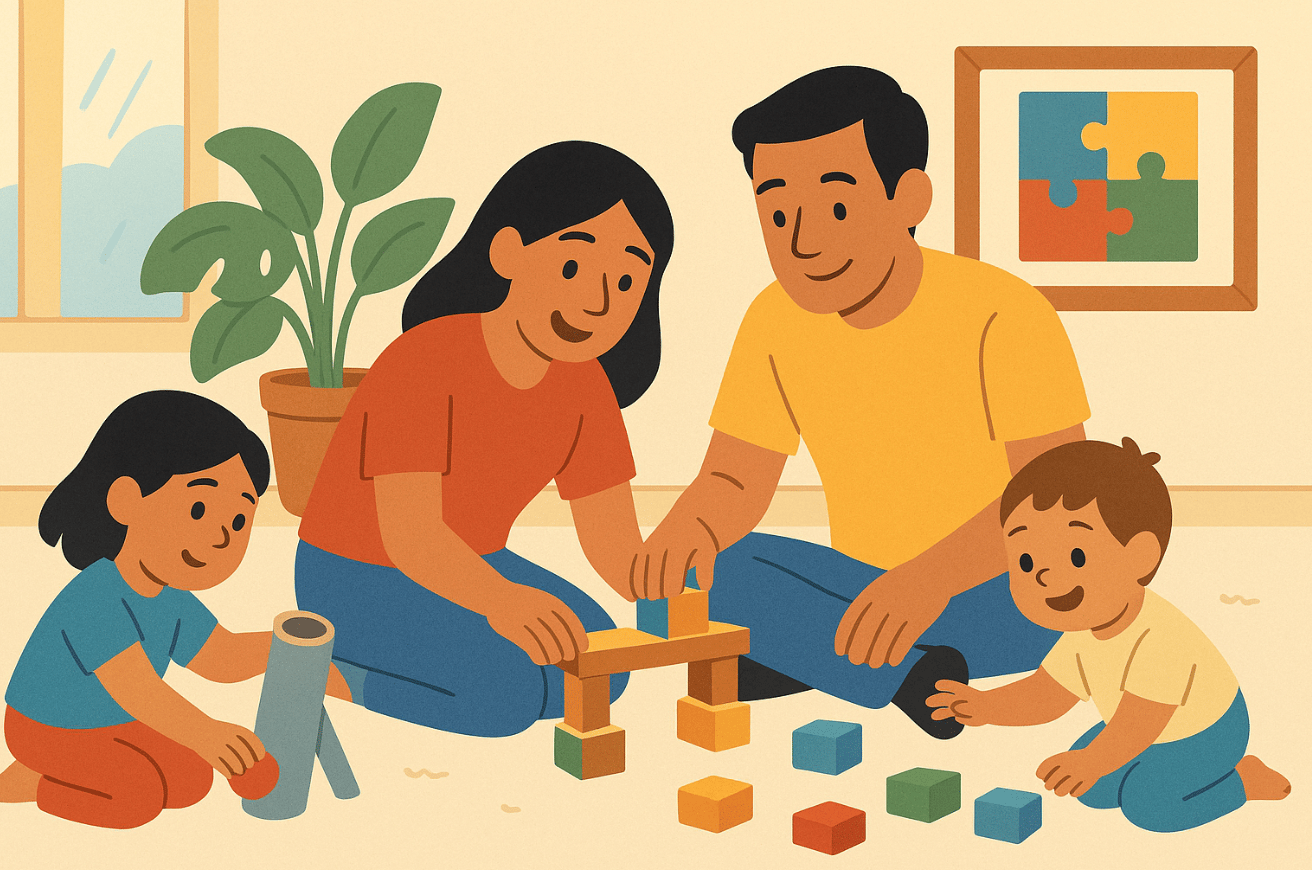
Having trouble sleeping? Give this a try...
Some nights, slowing down and switching off is the hardest part.
That’s where AGZ comes in—the new nightly drink from AG1 designed to help you unwind, sleep well, and wake up in the morning without the grogginess that you may get from other sleep products.*
Rather than overriding your body's natural rhythms, AGZ helps your mind and body ease into rest with easy-to-absorb ingredients such as Saffron, Magnesium and Ashwagandha.
You can choose from three tasty flavors, Mixed Berry, Chocolate and Chocolate mint and every first purchase comes with a FREE AGZ frother.
*These statements have not been evaluated by the Food and Drug Administration.
Hey {{parent_name}}, here are some new activities to try out
💛 A Little Click Goes a Long Way
We carefully choose the ads in this newsletter to make sure they’re family-friendly and relevant. When you click on them, you’re helping keep Playful Parent free and thriving—so thank you for supporting us with just a tap or two!
Welcome to week 33 of Wonder Weeks: a year of creativity, curiosity and connections. ☀️ This Week’s Theme: Problem Solvers!
🌟 Problem Solvers Week
This week, we’ll celebrate our children as problem solvers. Every time they stack a block, rescue a toy, or figure out how to share, they’re not just “playing” — they’re building important skills for life. Through fun challenges, teamwork, and imagination, we’ll give kids the chance to practice persistence, creativity, and resilience in safe and joyful ways.

🌈 Let’s stay connected!
For daily tips, playful moments, and gentle reminders—we’re on social too.
Come say hi and join the cozy parenting community 💛
We would love to feature you!
👉 [@playfulparent] – come say hi!

Note: activities may be similar for kids of a similar age.

Activities
🧩 Problem Solvers Week Activities
1. 🏗️ How Tall Can It Go?
Ages: 3–6 | Skills: Engineering thinking, balance, teamwork
Materials: Blocks, cups, or recycled containers
How to Play:
Challenge children to build the tallest tower possible.
Encourage experimenting with wide vs. narrow bases.
Celebrate all attempts—even the wobbly ones!
🧠 Why it Matters: Builds resilience and introduces trial-and-error learning.
👶 Level Down: Stack 2–3 blocks and practice knocking them down safely.
⚡ Level Up: Add a timer: “Can you build a tower taller than you in 3 minutes?”
2. 🎈 The Bridge Builder
Ages: 3–6 | Skills: Problem solving, planning, teamwork
Materials: Blocks, sticks, cardboard strips, toy cars/figures
How to Play:
Ask: “How can we get the toy car across the river?” (use blue paper/scarf as the river).
Offer materials and let kids design different bridges.
Test: Which bridge holds? Which needs fixing?
🧠 Why it Matters: Supports critical thinking and persistence.
👶 Level Down: Pre-set a simple plank bridge for toddlers to roll cars across.
⚡ Level Up: Challenge them to make a bridge strong enough for multiple cars.
3. 🔄 Ball Run Challenge
Ages: 3–6 | Skills: Engineering, cause & effect, creativity
Materials: Cardboard tubes, PVC pipes, funnels, tape, small balls
How to Play:
Invite kids to build a ball run from top to bottom.
Test if the ball makes it through—what needs adjusting?
Encourage redesign and collaboration.
🧠 Why it Matters: Teaches persistence, early physics, and group problem solving.
👶 Level Down: Provide a simple pre-made ramp for rolling balls.
⚡ Level Up: Add turns, drops, or race two balls at once.
4. 👫 What Would You Do If…?
Ages: 3–6 | Skills: Social problem solving, empathy, communication
Materials: Simple scenario cards or oral prompts
How to Play:
Present real-life scenarios: “What if both friends want the same toy?”
Ask children how they might solve it.
Role-play solutions and practice calm words.
🧠 Why it Matters: Builds emotional intelligence and peaceful conflict resolution.
👶 Level Down: Use puppets/dolls to act out very simple turn-taking problems.
⚡ Level Up: Invite older kids to come up with multiple solutions and compare outcomes.
5. 🧩 Team Puzzle Fixers
Ages: 3–6 | Skills: Cooperation, perseverance, critical thinking
Materials: Puzzles, matching cards, or simple scavenger hunts
How to Play:
Present a puzzle and challenge kids to “solve it together.”
Encourage communication: “Where could this piece go?”
Celebrate when the group completes it.
🧠 Why it Matters: Strengthens teamwork and patience.
👶 Level Down: Offer chunky toddler puzzles with fewer pieces.
⚡ Level Up: Hide pieces around the room for a combined “find + solve” challenge.
👶 Little Explorer Problem-Solvers
6. 🪣 Fill It, Dump It, Solve It
Ages: 18m–3 | Skills: Cause & effect, fine motor, persistence
Materials: Buckets, cups, beans/rice/pompoms (or outdoor sand/water)
How to Play:
Give little ones containers to scoop, fill, and dump.
Watch them try different tools (cups, spoons, hands).
Ask gentle problem prompts: “What happens if it’s too full?”
🧠 Why it Matters: Builds persistence and early scientific thinking.
👶 Level Down: Use just large items (blocks, balls) to drop in/out of buckets.
⚡ Level Up: Add funnels or smaller scoops for trickier filling challenges.
7. 🐻 Teddy Rescue Mission
Ages: 18m–3 | Skills: Problem solving, gross motor, imagination
Materials: Favorite stuffed animals, chairs, scarves, boxes
How to Play:
Place a stuffed animal “stuck” somewhere (on a chair, under a scarf).
Ask: “How can we rescue Teddy?”
Let toddlers try climbing, pulling, or moving obstacles with help.
🧠 Why it Matters: Encourages creative thinking and safe risk-taking.
👶 Level Down: Keep Teddy close and easy to reach for instant success.
⚡ Level Up: Add 2–3 simple obstacles (chair tunnel, scarf to lift, block to climb).
As you play this week, notice the little ways your child practices cooperation — a smile while waiting their turn, a hand reaching out to help, a story built one sentence at a time. These moments may feel small, but they’re laying the foundation for teamwork, empathy, and lasting friendships. When we nurture cooperation in childhood, we’re planting seeds for a kinder, more connected world.


